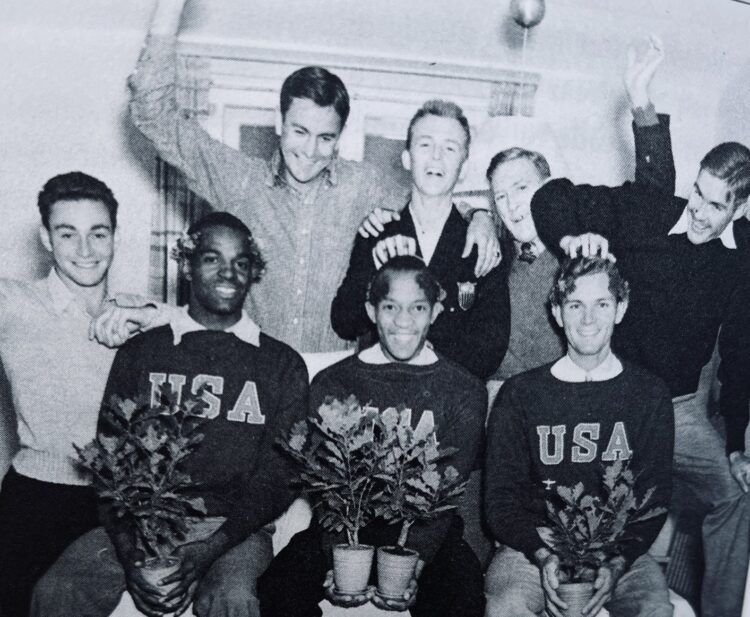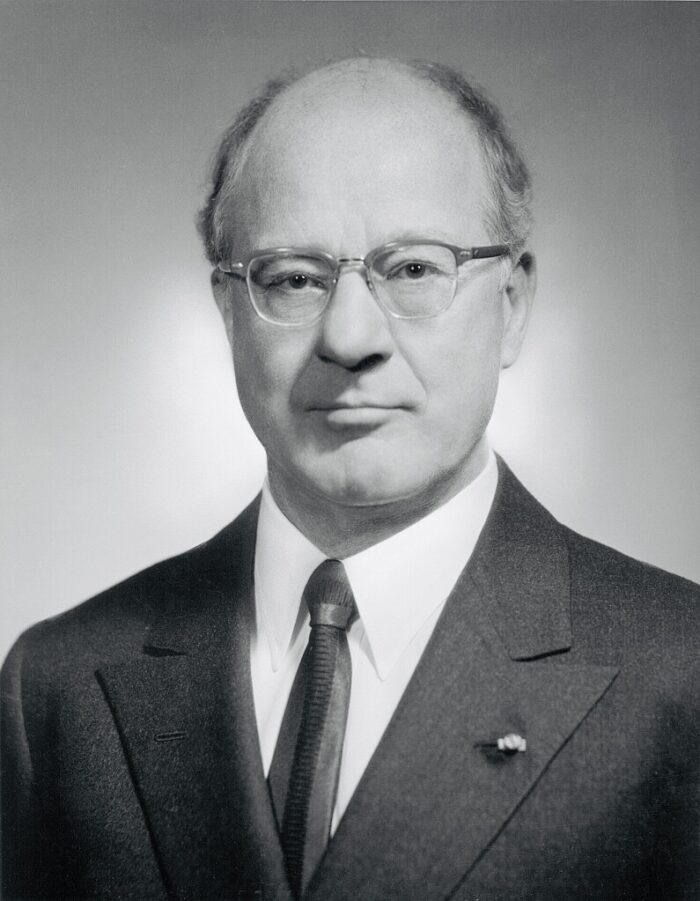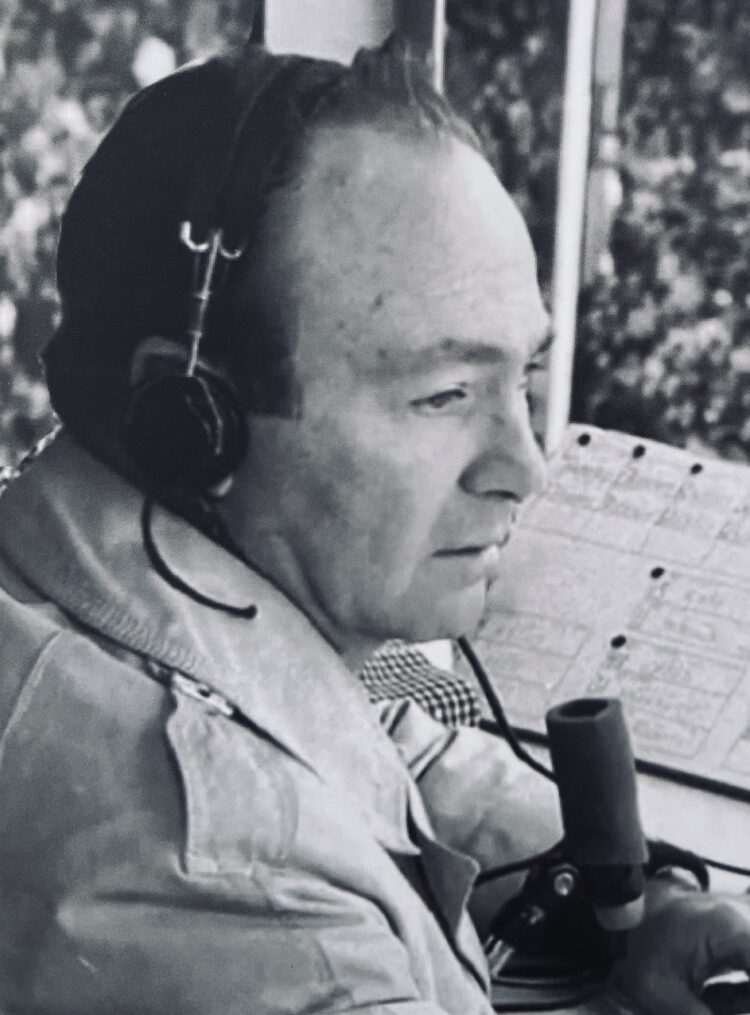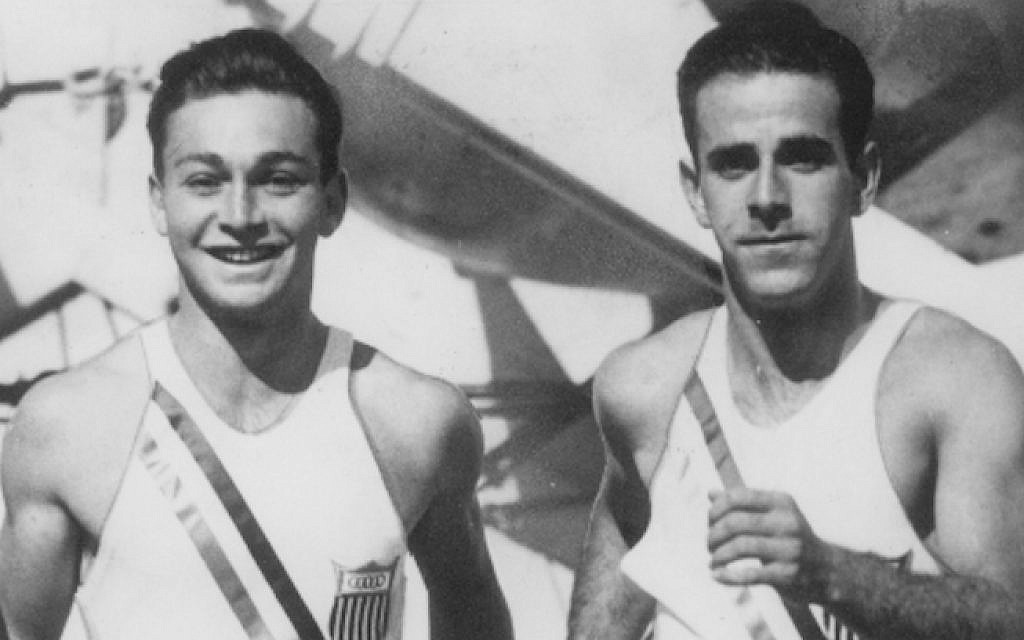Marty Glickman was a renowned radio broadcaster, having been the voice of the New York Giants football team and the New York Knicks basketball club for close to half a century. But his real claim to “fame” was his shocking removal from a signature track and field event at the 1936 Olympic Games in Berlin.
At the last moment, he and his fellow Jewish teammate, Sam Stoller, were dropped from the 400 meters relay race, thereby denying the pair Olympic glory. Jefferey Gurock, the author of Marty Glickman: The Life of an American Jewish Sports Legend (New York University Press), believes they were sidelined to appease Adolf Hitler’s Nazi regime in Germany.
For years, Glickman blamed his exclusion on “politics,” but in the 1980s, he began to speak openly and candidly about this disgraceful incident, which angered and saddened him.

Glickman, who died in 2001 at the age of 83, recovered from this indignity and forged an admirable career in sports broadcasting. But Stoller was so deeply affected by it that it undermined his life, says Gurock, a professor of Jewish history at Yeshiva University.
By his estimation, the miscarriage of justice that occurred in Berlin underscored the complexities that faced Glickman’s generation of Jews in the United States.
“Jews like Glickman, especially those who grew up in New York, the largest Jewish city in the world, began their lives in neighborhoods where they could believe the whole world was Jewish … They were located in comfortable cocoons of their own ethnicity … However, those who ventured away from their homes to parts of America that were not their own discovered that … there were distinct barriers to achieving economic success and social acceptance.”
In plain language, Jews had to cope with the persistence of antisemitism in American society.
Glickman, the scion of Romanian immigrants from Isai, was raised in New York City’s Lower East Side. Until high school, he was unaware of antisemitism. By then, as Gurock observes, the sense that Jews lived on the margins had increased as the Depression took hold.
A gifted athlete, he was a track and field star and led his football team to the city championship. At Syracuse University, from which he graduated in 1939, he was a sprinter and a halfback.
Glickman was selected as a member of the U.S. Olympics team, joining several other Jews on it. While he thought that it was important for Jewish athletes to shatter the myth of Aryan superiority, the American Jewish Congress urged the U.S. to boycott the Berlin Olympics altogether.
Germany, which had been awarded the Olympics in 1931, almost two years before Hitler’s accession to power, promised that the antisemitic policies of the Third Reich would not affect this athletic festival. Based on this rationale, the U.S. decided to participate in the Olympics, but only after a prominent member of the Amateur Athletic Union warned that a boycott would arouse antisemitism among American youths.
Glickman was in high spirits in Berlin on the day he received the awful news. On August 8, the U.S. track coach, Dean Cromwell, and his assistant, Lawson Robertson, informed Glickman and Stollar that they were to be replaced by Jesse Owens and Ralph Metcalfe, both of whom were African Americans. Owens, already having won three gold medals, demanded that Glickman and Stollar be reinstated.
Glickman spoke up as well, saying that their last minute removal would trigger “a lot of criticism back home.”
Their pleas were in vain.
The designated U.S. relay team would consist of Owens, Metcalfe, Foy Draper and Frank Wykoff. Glickman and Stoller watched the foursome win the race in record time.
After the Olympics, Glickman went as far as to express great disappointment for being excluded. In general, he ascribed his exclusion to “politics.”

The acclaimed sportswriters, Grantland Rice and John Kiernan, claimed that the best runners had been chosen. Gurock is of the view that antisemitism accounted for their removal. He is especially critical of Avery Brundage, the then president of the U.S. Olympic Committee.
Glickman’s initial non-combative approach was not all that surprising, says Gurock. His “reticence to call out prejudice and to create an uproar over antisemitism was in line with the way many Jews — perhaps most Jews — of that era dealt with Jew hatred. They were non-confrontational, concerned about what aggressive responses might ultimately mean for their status as members of a minority group.”
The bigotry that was present in the United States at that time manifested itself in another incident that touched Glickman. Before returning to Syracuse University, he learned that he was a persona non grata at the New York Athletic Club, where he assumed he could work out. Since its membership was reserved for Christians only, he was snubbed, his Olympic credentials notwithstanding.
Despite these setbacks Glickman continued his intercollegiate career as a sprinter and running back. His exploits were noticed by a Jewish haberdasher in Syracuse who hit on the idea of having Glickman host a weekly sports show on radio. Glickman was reluctant, saying he was preparing for a career in civic administration. Nonetheless, he accepted the offer. In the meantime, he supplemented his income by playing semi-pro football.
He got his first big break in broadcasting when a New York radio station hired him to cover track meets at Madison Square Gardens. He joined the armed forces in 1943, working as an aircraft controller in the Pacific theater. Upon his discharge in 1945, he picked up where he had left off. Eventually, he covered a variety of sports as a broadcaster.
Yet his voice was rarely heard outside of New York City. The problem was his Jewish-sounding surname. This was an epoch when Jews in the entertainment industry anglicized their names. The movie actor Jacob Garfinkle became John Garfield and the sports broadcaster Melvin Allen Israel was transformed into Mel Allen.

Proud of his Jewish heritage, Glickman refused to play that game.
In 1979, he recorded his memoirs for the American Jewish Committee’s oral history project. During the course of his ruminations, he finally admitted that antisemitism was to blame for what had happened in Berlin. As he put it, “In order to save the Nazis from more embarrassment … the Jews were kept off the team by an American Nazi named Avery Brundage with the help of Dean Cromwell.”
Subsequently, Glickman charged that “two Jewish boys were prevented from running because we were Jewish, prevented by an American Nazi and aided and abetted by a track coach.”
Gurock tells this story with skill and aplomb, reminding readers that antisemitism was a major force in America until recent decades.
